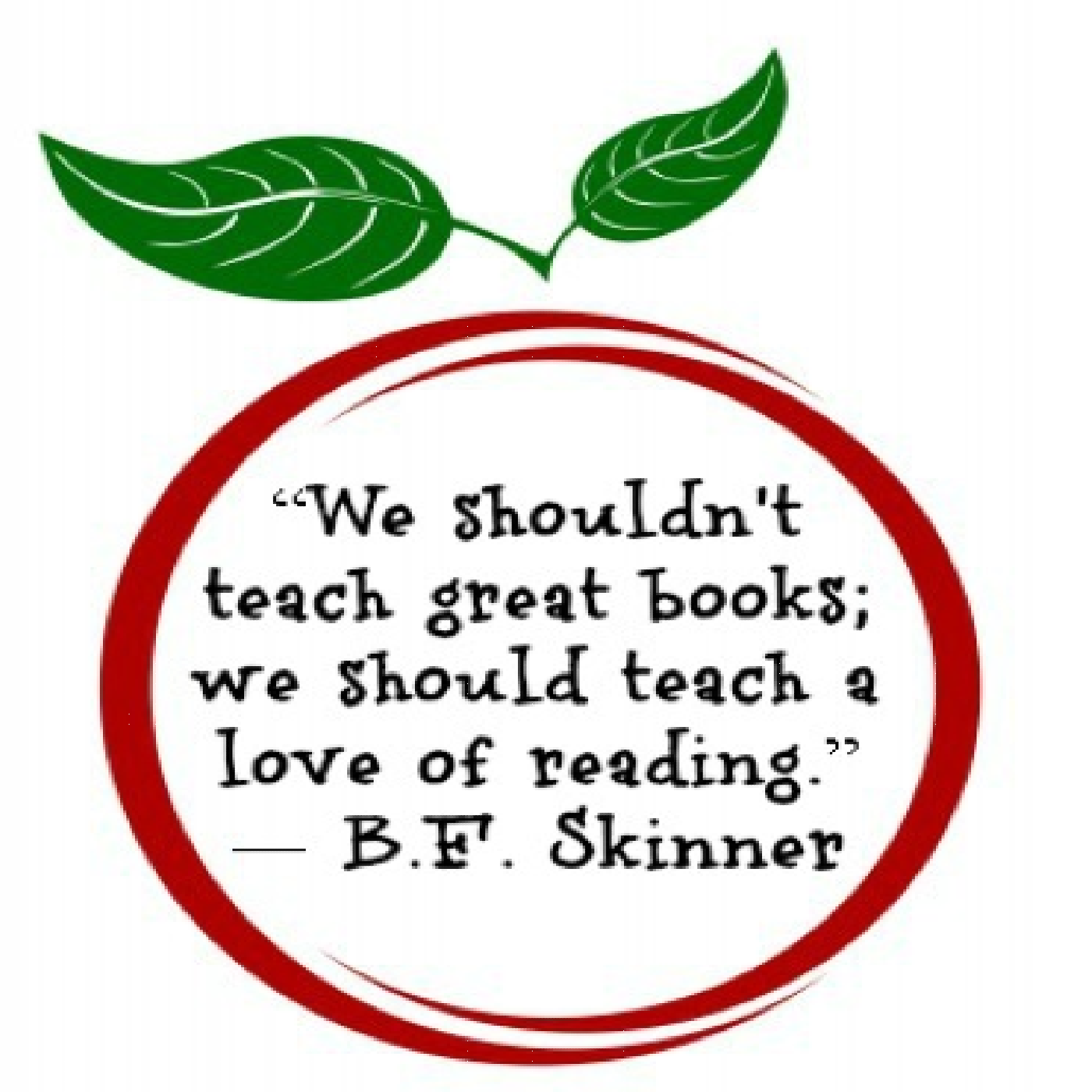
26.1K
Downloads
305
Episodes
The Chills at Will Podcast is a celebration of the visceral beauty of literature. This beauty will be examined through close reads of phrases and lines and passages from fiction and nonfiction that thrills the reader, so much so that he wants to read again and again to replicate that thrill. Each episode will focus on a different theme, such as "The Power of Flashback," "Understatement," "Cats in the Cradle," and "Chills at Will: Origin Story."
Episodes
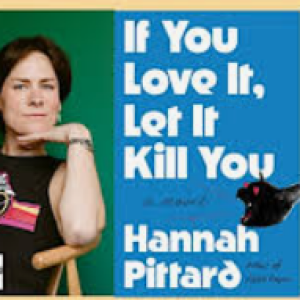
23 hours ago
23 hours ago
Notes and Links to Hannah Pittard’s Work
Hannah Pittard is the author of six books, including the memoir WE ARE TOO MANY and the novel out as of today, IF YOU LOVE IT, LET IT KILL YOU. She is a winner of the Amanda Davis Highwire Fiction Award, a MacDowell fellow, and a professor of English at the University of Kentucky. She lives with her boyfriend and stepdaughter in Lexington. Much of her family lives nearby.
Buy If You Love It, Let It Kill You
“Two Writers Fell in Love, Married, Then Divorced. Who Gets the Story?” from The New York Times
At about 1:50, Hannah describes the evolution of her last name’s pronunciation
At about 3:00, Hannah talks about the cover for If You Love It, Let it Kill You and describes her mindset in the leadup to her book’s publication
At about 4:50, Pete shouts out Rachel Yoder’s Nightbitch, both the book and movie, and asks Hannah to cast a possible future movie for If You Love It, Let it Kill You
At about 7:20, Pete compliments the “snappy dialogue” of the book in asking Hannah about her family background and early intellectual life
At about 8:45, Hannah discusses the book as “100% fiction” while talking about her sister and family as “muses”
At about 9:55, Public urination is discussed, both within the book, and without
At about 10:50, Hannah traces her early reading life and how she “fell in love with books” and shouts out Faulkner, Flannery O’Connor, and Tim O’Brien (In the Lake of Woods)
At about 14:30, Pete brings up James Frey in discussing the fine line between fiction and nonfiction, as discussed by Hannah with regard to In the Lake of the Woods’ brilliance
At about 15:30, Ann Beattie, Grace Paley, Alice Munro, are referenced as big influences on Hannah’s writing and reading in college and right after, as she traces her semi-accidental foray into MFA
At about 17:20, Hannah talks about updating her contemporary reading as she entered MFA, including her early reading of Infinite Jest!
At about 19:15, Alice Munro’s “upsetting” story is discussed as is Claire Deder’s Monsters, in the larger discussion about problematic and damaging authors
At about 22:50, Hannah discusses her current reading, including Honor Jones’ Sleep, and Lynn Stever Strong’s , and the series Storybook ND
At about 25:40, Hannah shouts out the book’s publisher and places to buy the book, including Good Neighbor Books in upstate NY and Exile in Bookville in Chicago
At about 27:40, the two discuss Margaret Atwood’s “cameo” in the book and Atwood’s epigraph
At about 28:55, Pete takes another opportunity to shout out Jess Walter, Beautiful Ruins, and Edoardo Ballerini
At about 33:00, Hannah shouts out “Dog Heaven” by Stephanie Vaughn in a beautiful audio form read by Tobias Wolff, and the two fanboy/girl about Wolff’s “Bullet in the Brain”
At about 34:40, Pete lays out the book’s opening and Hannah replies to Pete’s question about her original and full chapter titles
At about 36:35, The two discuss the book’s exposition and plotline and how “Today I am restless” sets the scene for the book’s ethos
At about 40:00, Hannah shares some funny real-life stories from which she took pieces for her book’s characters
At about 41:55, Pete playfully laments the incredible veracity of Hannah’s writing
At about 44:40, The two lay out a sort of “existential crisis” and an anxiety about contentment at the book’s beginning; Hannah notes the protagonist’s “place of privilege”
At about 47:10, Pete remarks on the book’s subtlety and Hannah on the protagonist’s “distanc[ing]” based on a past trauma
At about 49:35, Hannah responds to Pete’s asking about the vagaries of memory and its connections to the protagonist’s actions and busy thoughts
At about 52:05, The two discuss the protagonist’s ennui
At about 53:15, Hannah responds to Pete’s questions about the book’s choral/allegorical nature
At about 58:55, Hannah talks about the dynamic between the protagonist and her students, and Hannah’s own evolution in teaching more flexibly
At about 1:02:05, Hannah responds to Pete’s wonderings and musings of “The Irishman” and the character’s implications
At about 1:07:00, Hannah reflects on various iterations of scenes involving a threatening student
At about 1:09:10, Pete cites Jess Walter’s ending for Beautiful Ruins, in raving about Hannah’s wonderful last line and skill in bringing the storyline full circle
You can now subscribe to the podcast on Apple Podcasts, and leave me a five-star review. You can also ask for the podcast by name using Alexa, and find the pod on Stitcher, Spotify, and on Amazon Music. Follow Pete on IG, where he is @chillsatwillpodcast, or on Twitter, where he is @chillsatwillpo1. You can watch other episodes on YouTube-watch and subscribe to The Chills at Will Podcast Channel. Please subscribe to both the YouTube Channel and the podcast while you’re checking out this episode.
Pete is very excited to have one or two podcast episodes per month featured on the website of Chicago Review of Books. The audio will be posted, along with a written interview culled from the audio. His conversation with Hannah will be up in the next week or two at Chicago Review.
Sign up now for The Chills at Will Podcast Patreon: it can be found at patreon.com/chillsatwillpodcastpeterriehl
Check out the page that describes the benefits of a Patreon membership, including cool swag and bonus episodes. Thanks in advance for supporting Pete’s one-man show, DIY podcast and extensive reading, research, editing, and promoting to keep this independent podcast pumping out high-quality content!
This month’s Patreon bonus episode features an exploration of writing projects that got away, as Pete discusses a particular writing project that had so much potential but is now unfinishable-at least he thinks so.
Pete has added a $1 a month tier for “Well-Wishers” and Cheerleaders of the Show.
This is a passion project, a DIY operation, and Pete would love for your help in promoting what he’s convinced is a unique and spirited look at an often-ignored art form.
The intro song for The Chills at Will Podcast is “Wind Down” (Instrumental Version), and the other song played on this episode was “Hoops” (Instrumental)” by Matt Weidauer, and both songs are used through ArchesAudio.com.
Please tune in for Episode 287 with Jordan Harper, whose 2017 novel She Rides Shotgun is being adapted and released through Lionsgate Studios on August 1, which is also when the episode airs.
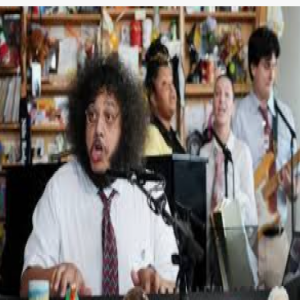
Friday May 16, 2025
Friday May 16, 2025
Notes and Links to The Philharmonik’s Work
The Philharmonik, who was an Episode 58 guest, is a vocalist, multi-instrumentalist, lyricist, music producer and genre defining artist. Recently, he has been nationally and globally recognized after winning the 2023 American Song writer contest and NPR’s 2024 Tiny Desk Contest for his song “What’s It All Mean?”
NPR Announcement of Tiny Desk Winner: “What’s It All Mean?”
At about 1:35, Christian talks about the year since he won NPR’s Tiny Desk Contest, and his “shift[ing] perspective”
At about 2:50, Christian discusses the importance of his victory in the American Songwriters’ Contest, and the important “domino effect”
At about 5:50, Christian talks about his vision board and manifesting for his NPR victory
At about 7:30, Christian talked about the waiting period between submission for NPR and his victory, and “starting to lose faith”
At about 9:30, Christian talks about his views on competition
At about 10:30, Usher: “Watch this!”
At about 11:10, Christian shares his memories-he mentions being “in disbelief”-of getting the call
At about 13:40, Christian talks about his initial entry in Tiny Desk in 2018 and his philosophy in entering
At about 15:00, Christian responds to Pete’s questions about the logistics and vision for the video for “What’s It All Mean?”
At about 17:40, Pete asks Christian about his interest in music videos and expressing himself through the videos
At about 19:00, The two discuss Office Space, The Office, and other parallels to the working world and Christian’s video
At about 20:00, Chrsitian expands on his band/video mates as “the final piece”
At about 21:45, Christian shouts out the venue and benefactors for his video shoot-shout out the Machados and All-City Homes in Oak Park, Sacramento
At about 23:20, Christian talks about the wonderful feedback from fans
At about 24:00, Pete shares praise from NPR about the song and video
At about 24:50, Christian expands upon the truly “tiny” Tiny Desk and the logistics of the Tiny Desk Concert itself
At about 27:15, Christian discusses the post Tiny Desk Concert tour arranged by NPR
At about 29:10, Christian breaks down “in the pocket” and “dry[ing] out the mix” as he gets his music professor on
At about 30:05, Christian calls Stevie Wonder “the godfather” of “What’s It All Mean” and expands on how he likes the ways Beatles used guitars and connections to amps and reverb
At about 31:50, Christian responds to Pete’s questions about the arrangement of the winning song, especially the opening crescendo
At about 34:10, Christian answers Pete’s question about how the winning song’s meaning ahs evolved over time
At about 36:00, Pete homes in on some meaningful lines from the winning song as the two reflect on the unknowns of life
At about 38:40, Pete mentions Severance and “No Surprises” by Radiohead as reminiscent of the winning song
At about 40:20, Christian reflects on the “ups and downs of the creative process” and the (mostly) special time “in the lab”
At about 41:30, Christian talks about listener data and questioning his music career at times
At about 43:30, Christian shares the exciting news about his upcoming world tour
You can now subscribe to the podcast on Apple Podcasts, and leave me a five-star review. You can also ask for the podcast by name using Alexa, and find the pod on Stitcher, Spotify, and on Amazon Music. Follow Pete on IG, where he is @chillsatwillpodcast, or on Twitter, where he is @chillsatwillpo1. You can watch other episodes on YouTube-watch and subscribe to The Chills at Will Podcast Channel. Please subscribe to both the YouTube Channel and the podcast while you’re checking out this episode.
Pete is very excited to have one or two podcast episodes per month featured on the website of Chicago Review of Books. The audio will be posted, along with a written interview culled from the audio. This week, his conversation with Episode 270 guest Jason De León is up on the website. A big thanks to Rachel León and Michael Welch at Chicago Review.
Sign up now for The Chills at Will Podcast Patreon: it can be found at patreon.com/chillsatwillpodcastpeterriehl
Check out the page that describes the benefits of a Patreon membership, including cool swag and bonus episodes. Thanks in advance for supporting Pete’s one-man show, his DIY podcast and his extensive reading, research, editing, and promoting to keep this independent podcast pumping out high-quality content!
This month’s Patreon bonus episode will feature an exploration of the wonderful poetry of Khalil Gibran.
I have added a $1 a month tier for “Well-Wishers” and Cheerleaders of the Show.
This is a passion project of Pete’s, a DIY operation, and he’d love for your help in promoting what he’s convinced is a unique and spirited look at an often-ignored art form.
The intro song for The Chills at Will Podcast is “Wind Down” (Instrumental Version), and the other song played on this episode was “Hoops” (Instrumental)” by Matt Weidauer, and both songs are used through ArchesAudio.com.
Please tune in for Episode 286 with Hannah Pittard, winner of the Amanda Davis Highwire Fiction Award and a MacDowell fellow. She is the author of six books, including the memoir WE ARE TOO MANY and the forthcoming novel IF YOU LOVE IT, LET IT KILL YOU, whose Pub Day is July 15, the day this episode drops.
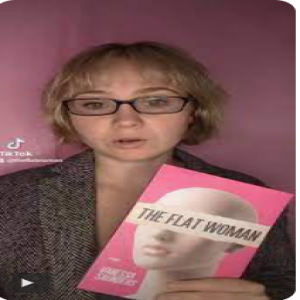
Tuesday May 06, 2025
Tuesday May 06, 2025
Notes and Links to Vanessa Saunders’ Work
Vanessa Saunders is a writer living in New Orleans. She teaches as a Professor of Practice at Loyola University New Orleans. She was the editor-in-chief of Helium Journal from 2013 to 2016.
Her writing has appeared in Writer's Digest, Writer's Chronicle, Seneca Review, Sycamore Review, Los Angeles Review, Nat. Brut, Entropy, PANK, Passages North, Stockholm Review of Literature and other journals. She is at work on a novel of magical realism about whiteness and a book-length prose poem about the ethics of authorship.
At about 1:45, Vanessa recommends places to buy her book, including Baldwin Books
At about 2:55, Vanessa responds to Pete’s question about her expectations for the Pub Day and beyond versus the realities
At about 5:20, the two discuss Kafka’s Metamorphosis and his parables and connections to Vanessa’s The Flat Woman, as well as absurdities and allegory
At about 9:30, Vanessa gives background on her early reading and writing, including her grandfather’s and Sylvia Plath’s influences, and Anne Carson’s influence on The Flat Woman
At about 13:30, Vanessa explains the unique British library system
At about 15:25, Vanessa responds to Pete’s questions about
At about 16:35, Vanessa mentions Kelly Link, Sarah Rose Etter, Aimee Bender, and Hadriana in my Dreams as contemporary writers and writing that inspires her
At about 18:20, Pete and Vanessa shout out the generosity and greatness of Aimee Bender, and Vanessa talks about meetings with inspiring writers
At about 19:20, Pete shouts out Antonya Nelson’s “In the Land of Men” for the 1,987,231 time in Chills at Will history
At about 19:55, The two discuss the book’s epigraph and seeds for the book
At about 22:40, Vanessa expands upon stewardship and community and the environment in the formulation of her book
At about 24:20, Pete wonders about Vanessa’s decision to avoid naming her characters
At about 26:40, Pete asks Vanessa
At about 29:10, the two discuss the lengthy “setups” that are chapter titles, or “headlines”
At about 32:20, “leaky boundaries” and the family dynamic, including the absent father, are discussed
At about 33:35, “Terrorism” and government cover-up in the book and its couching is discussed; Vanessa talks about birds as “indicator species,” as she learned from a group of “elite ornithologists” (!!!) with whom she lived
At about 36:40, Vanessa talks about perpetual archetypes and storylines for “female villainy”
At about 37:40, Bird grief and research and animals as stand-ins for humans as discussed in the book is explored by Vanessa
At about 41:10, Vanessa, in explaining her views of animals and things and dominion, references a wonderful Louise Gluck line
At about 42:35, Pete and Vanessa discuss Bay Area history, anthropology. and its effects on their mindsets and writing
At about 44:00, The two talk about the “patriarch[al]” POPS Cola, and the protagonist’s early life after her mother is arrested and convicted
At about 45:45, Vanessa expands on the patriarchal society and the 2024 election’s connections to the systemic misogyny on display in the book
At about 49:50, The protagonist, depicted 10 years as “The woman,” and Part II are described, as well as the “chaotic aunt” and more ugly realities that confront the woman
At about 51:45, Vanessa cites inspiration from an interview with Toni Morrison regarding family alienation
At about 53:10, Vanessa explores connections between humor and speculative fiction
At about 54:10, The woman’s earliest interactions with and attractions to the man are discussed
At about 55:10, Vanessa responds to Pete’s question about the man being drawn to Elvis, with a trip down memory lane of a San Francisco that may no longer exist
At about 59:20, Vanessa talks about setting the woman as working at the very company that has imprisoned her mother
At about 1:01:25, Vanessa responds to Pete’s question about the grisly displays of hurt and dead animals, and the two discuss ideas of entertainment and willful (or not) ignorance about the brutality in Gaza and climate change
At about 1:05:00, Pete complements Vanessa for humor on the page and asks if the man has “discovered the manosphere”
At about 1:08:35, Vanessa talks about social justice being “commodified”
At about 1:10:40, Vanessa talks about initial hesitat[ion] in depicting the man as having some assorted wisdom, along with many horrible traits
At about 1:11:40, Vanessa discusses a famous writer, who is not related to her :(
At about 1:13:00, Another Maurice Carlos Ruffin shoutout
At about 1:14:20, Movie actors for the book’s characters!
At about 1:16:10, “You are hearing me talk”-Al Gore
You can now subscribe to the podcast on Apple Podcasts, and leave me a five-star review. You can also ask for the podcast by name using Alexa, and find the pod on Stitcher, Spotify, and on Amazon Music. Follow Pete on IG, where he is @chillsatwillpodcast, or on Twitter, where he is @chillsatwillpo1. You can watch other episodes on YouTube-watch and subscribe to The Chills at Will Podcast Channel. Please subscribe to both the YouTube Channel and the podcast while you’re checking out this episode.
Pete is very excited to have one or two podcast episodes per month featured on the website of Chicago Review of Books. The audio will be posted, along with a written interview culled from the audio. This week, his conversation with Episode 270 guest Jason De León is up on the website. A big thanks to Rachel León and Michael Welch at Chicago Review.
Sign up now for The Chills at Will Podcast Patreon: it can be found at patreon.com/chillsatwillpodcastpeterriehl
Check out the page that describes the benefits of a Patreon membership, including cool swag and bonus episodes. Thanks in advance for supporting Pete’s one-man show, his DIY podcast and his extensive reading, research, editing, and promoting to keep this independent podcast pumping out high-quality content!
This month’s Patreon bonus episode will feature an exploration of the wonderful poetry of Khalil Gibran.
I have added a $1 a month tier for “Well-Wishers” and Cheerleaders of the Show.
This is a passion project of Pete’s, a DIY operation, and he’d love for your help in promoting what he’s convinced is a unique and spirited look at an often-ignored art form.
The intro song for The Chills at Will Podcast is “Wind Down” (Instrumental Version), and the other song played on this episode was “Hoops” (Instrumental)” by Matt Weidauer, and both songs are used through ArchesAudio.com.
Please tune in for Episode 285 with The Philharmonik, Episode 58 guest, vocalist, multi-instrumentalist, lyricist, music producer and genre defining artist. Recently, he has been nationally and globally recognized after winning the 2023 American Song writer contest and NPR’s 2024 Tiny Desk Contest for his song “What’s It All Mean?”
The episode marks the one-year anniversary of his NPR Tiny Desk Contest win. This will be released on May 16.
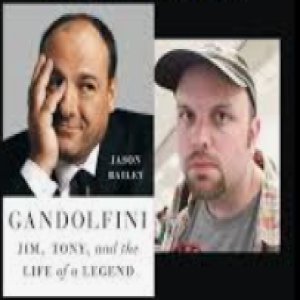
Tuesday Apr 29, 2025
Tuesday Apr 29, 2025
Notes and Links to Jason Bailey’s Work
Jason Bailey is a film critic, author, and podcaster. His work has appeared in The Playlist, The New York Times, Vulture, Vice, Rolling Stone, and Slate, among others. He is the editor-in-chief of Crooked Marquee, the former film editor at Flavorwire, and the author of six books-the most recent is Gandolfini: Jim, Tony, and the Life of a Legend. He lives in the Bronx with his wife and two daughters.
Buy Gandolfini: Jim, Tony, and the Life of a Legend
At about 2:25, Jason talks about book events and good places to buy his book, included Matt Zoller Seitz’s dynamic website
At about 4:00, Jason talks about the incomparable Edoardo Ballerini as his audiobook narrator
At about 7:05, Jason talks about his cinematic and reading influences since childhood; he tells a story of seeing “At the Movies” and becoming a cinephile and movie criticism fan
At about 12:10, Jason responds to Pete’s question about career thoughts in his adolescent years revolving around moviemaking/writing about movies
At about 15:10, Jason talks about his approach in watching movies and whether or not he can watch a movie while “cleansing his mind” and not watching for “work”
At about 16:40, Pete asks Jason about him going to movie theaters often
At about 19:15, Jason responds to Pete’s question about favorite movie(s)/movies that explain his aesthetic, and the two discuss The Godfather Part I and Part II (and Part III!)
At about 23:35, Jason talks about being “sympathetic and empathetic and complex” in his depiction of James Gandolfini
At about 27:30, Jason shares feedback he received from Sopranos crew members and Drea DeMatteo in particular about James Gandolfini’s complicated legacy
At about 29:50, Jason talks about how his moviemaking history makes him more sympathetic in reviewing movies
At about 33:45, Jason explains his background as a fan of James Gandolfini in connection to his earlier roles and his Sopranos role
At about 38:50, Jason and Pete talk about post-Sopranos roles for James Gandolfini, typecasting, and delivery for iconic and moving lines
At about 40:35, Jason gives background on James Gandolfini’s view of the acting life and the importance of actors
At about 43:30, Jason responds to Pete’s questions about James Gandolfini’s Italian identity
At about 44:40, Pete and Jason discuss James Gandolfini’s real-life and lack of real-life organized crime connections and Tony Soprano-esque accent
At about 46:10, Jason tells an interesting, seemingly untold, story about James Gandolfini and dropping out of a Mafia movie
At about 47:50, Pete shares a Sammy “The Bull” Gravano story and Jason talks about James Gandolfini choosing roles to “put the last nail in that Tony Soprano coffin”
At about 50:15, The two discuss the haunting of James Gandolfini balanced with the great role of Tony Soprano
At about 53:20, Pete uses a supposed “jump the shark” moment to ask Jason about James Gandolfini being incredibly hard on himself
At about 55:25, Jason comments on the dichotomy between James Gandolfini’s incredibly selfless, and sometimes selfish, behavior
At about 58:00, The two reflect on a sense of seeming-contentment and fading health
At about 1:00:00, Jason responds to Pete’s questions about “treading lightly” regarding revelations and sympathetic coverage of such a beloved figure
At about 1:02:00, The two discuss revisiting The Sopranos dream scenes and the famous last scene after James Gandolfini’s death
At about 1:03:00, the two discuss the last scene(s) shot for The Sopranos
At about 1:04:00, Enough Said and its poignancy is discussed in terms of the potential of James Gandolfini’s acting range
At about 1:07:15, Jason describes the “gift” that is the final quote in the book, from Robert Iler
At about 1:08:00, Jason shares contact info and buying info for his book, from Abrams Books
You can now subscribe to the podcast on Apple Podcasts, and leave a five-star review. You can also ask for the podcast by name using Alexa, and find the pod on Stitcher, Spotify, and on Amazon Music. Follow Pete on IG, where he’s @chillsatwillpodcast, or on Twitter, where I’m @chillsatwillpo1. You can watch other episodes on YouTube-watch and subscribe to The Chills at Will Podcast Channel. Please subscribe to both my YouTube Channel and the podcast while you’re checking out this episode.
Pete is very excited to have one or two podcast episodes per month featured on the website of Chicago Review of Books. The audio will be posted, along with a written interview culled from the audio. His conversation with Episode 270 guest Jason De León is up on the website this week. A big thanks to Rachel León and Michael Welch at Chicago Review.
Sign up now for The Chills at Will Podcast Patreon: it can be found at patreon.com/chillsatwillpodcastpeterriehl
Check out the page that describes the benefits of a Patreon membership, including cool swag and bonus episodes. Thanks in advance for supporting his one-man show, his DIY podcast and his extensive reading, research, editing, and promoting to keep this independent podcast pumping out high-quality content!
This month’s Patreon bonus episode will feature an exploration of the wonderful poetry of Khalil Gibran.
Pete has added a $1 a month tier for “Well-Wishers” and Cheerleaders of the Show.
This is a passion project, a DIY operation, and Pete would love for your help in promoting what he’s convinced is a unique and spirited look at an often-ignored art form.
The intro song for The Chills at Will Podcast is “Wind Down” (Instrumental Version), and the other song played on this episode was “Hoops” (Instrumental)” by Matt Weidauer, and both songs are used through ArchesAudio.com.
Please tune in for Episode 284 with Vanessa Saunders, a Professor of Practice at Loyola University New Orleans. Her writing has appeared in Sycamore Review, Los Angeles Review, Stockholm Review of Literature and other journals. Her novel, The Flat Woman, won FC2's Ronald Sukenick Innovative Fiction Prize.
The episode airs on May 6.

Monday Apr 28, 2025
Monday Apr 28, 2025
Notes and Links to Emely Rumble’s Work
Emely Rumble, LCSW, is a distinguished licensed clinical social worker, school social worker, and seasoned biblio/psychotherapist with over 14 years of professional experience. Committed to making mental health services more accessible, Emely specializes in the transformative practice of bibliotherapy.
Passionate about advocating for the integration of creative arts in psychotherapy, mental well-being, and self-improvement, Emely champions the social model of disability and embraces a neurodiversity-affirming therapeutic approach. A distinguished member of The National Association of Poetry Therapy, Emely's work has been featured in respected publications such as Parents Magazine, ‘School Library Journal’, Bold Journey Magazine, BronxNet News, and The Bronx Is Reading.
Emely shares her expertise beyond traditional avenues through @Literapy_NYC, her dedicated platform on Instagram, TikTok, and Podia, where she provides valuable educational content.
Having earned her undergraduate degree from Mount Holyoke College and completed her social work degree at Smith College School for Social Work, Emely resides in the Bronx with her husband, two children, and her psychiatric service dog, Montana. She embodies a holistic and compassionate approach to mental health and well-being.
Buy Bibliotherapy in the Bronx
At about 2:10, Emely talks about the work and process involved as the book is about to be published
At about 3:20, Emely talks about early feedback and her dynamic audiobook
At about 4:35, Emely gives a brief summary of the book and talks about where to buy the book and where to find her online
At about 10:30, Emely talks about “escapism” and “realism” and
At about 13:50, Emely responds to Pete’s question about her reading of the Bible and connections to her grandmother as a healer and a Christian
At about 17:15, Maya Angelou, Sister Souljah are among those Emely shouts out as formative and transformative writers, especially in her “adultified” youth
At about 20:30, The two fanboy/girl about Maya Angelou and I Know Why the Caged Bird Sings
At about 21:30, bell hooks, Audre Lorde, Alexis Gumbs are cited as some inspiring writers for Emely
At about 24:40, Emely responds to Pete’s questions about the pivotal reading from her grandmother’s funeral and seeds for the book; she also shouts out a great editor in Nirmala Nataraj
At about 29:25, Natalie Gutierrez and her foreword are discussed-books as “communal medicine”
At about 30:30, Emely responds to Pete’s questions about bibliotherapy and the intellect and the heart in concert
At about 32:35, Emely responds to Pete’s questions about what she learned from her aunt’s schizophrenia and the ways in which she was treated and ideas of community and racism
At about 38:20, Emely gives background on early days of implementing bibliotherapy with patients and more connections to her aunt
At about 44:20, Ned Ashton and Sonny Corinthos shout outs!
At about 45:15, Pete asks Emely to define/describe bibliotherapy
At about 45:50, The two discuss the great Ms. Parkins and Strega Nona and fairy tales and how “childish” books can work so well with adults
At about 50:30, Making a Godfather II reference (obvi), Pete asks about Emely’s view on fiction and nonfiction and narratives in prescribing her books; Emely cites an interesting mindset of books as “mirrors, windows, and sliding glass doors,” as posited by Dr. Rudine Sims Bishop
At about 57:10, Emely responds to Pete’s question about what a successful nonfiction prescription
At about 1:00:50, Emely talks about intake for bibliotherapy
At about 1:01:40, The two discuss Andrew Carnegie and problematic authors
At about 1:05:35, Mayte and her story that involves emotional resonance and intersectionality is discussed
At about 1:07:40, Emely expands on ideas of learning and empathy that happen with therapists and clients
At about 1:13:00, Dr. Sadie P. Delaney is shouted out by Emely Rumble as a hero whom she learned about in her book research-The “Godmother of Bibliotherapy”
You can now subscribe to the podcast on Apple Podcasts, and leave a five-star review. You can also ask for the podcast by name using Alexa, and find the pod on Stitcher, Spotify, and on Amazon Music. Follow Pete on IG, where he’s @chillsatwillpodcast, or on Twitter, where he's @chillsatwillpo1. You can watch other episodes on YouTube-watch and subscribe to The Chills at Will Podcast Channel. Please subscribe to both the YouTube Channel and the podcast while you’re checking out this episode.
Pete is very excited to have one or two podcast episodes per month featured on the website of Chicago Review of Books. The audio will be posted, along with a written interview culled from the audio. His conversation with Episode 270 guest Jason De León is up on the website this week. A big thanks to Rachel León and Michael Welch at Chicago Review.
Sign up now for The Chills at Will Podcast Patreon: it can be found at patreon.com/chillsatwillpodcastpeterriehl
Check out the page that describes the benefits of a Patreon membership, including cool swag and bonus episodes. Thanks in advance for supporting his one-man show, his DIY podcast and his extensive reading, research, editing, and promoting to keep this independent podcast pumping out high-quality content!
This month’s Patreon bonus episode will feature an exploration of the wonderful poetry of Khalil Gibran.
Pete has added a $1 a month tier for “Well-Wishers” and Cheerleaders of the Show.
This is a passion project, a DIY operation, and Pete would love for your help in promoting what he’s convinced is a unique and spirited look at an often-ignored art form.
The intro song for The Chills at Will Podcast is “Wind Down” (Instrumental Version), and the other song played on this episode was “Hoops” (Instrumental)” by Matt Weidauer, and both songs are used through ArchesAudio.com.
Please tune in for Episode 283 with Jason Bailey, a film critic, author, and podcaster whose work has appeared in The New York Times, Vulture, Vice, Rolling Stone, and Slate, among others. He is the editor-in-chief of Crooked Marquee, and the author of five books. The episode goes live this evening, April 29, which is also Pub Day for his exciting new book, Gandolfini, about the legendary actor, James Gandolfini.
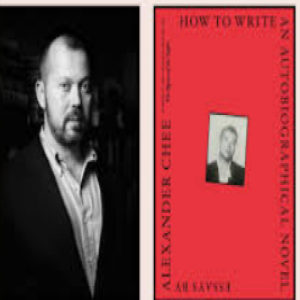
Tuesday Apr 22, 2025
Tuesday Apr 22, 2025
Notes and Links to Alexander Chee’s Work
Alexander Chee is the bestselling author of the novels Edinburgh and The Queen of the Night, and the essay collection How To Write An Autobiographical Novel, all from Mariner Books. A contributing editor at The New Republic and an editor at large at VQR, his essays and stories have appeared in The New York Times Magazine, T Magazine, The Sewanee Review, and the 2016 and 2019 Best American Essays. He was guest-editor for The Best American Essays of 2022.
He is a 2021 United States Artists Fellow, a 2021 Guggenheim Fellow in Nonfiction, and the recipient of a Whiting Award, a NEA Fellowship, an MCCA Fellowship, the Randy Shilts Prize in gay nonfiction, the Paul Engle Prize, the Lambda Editor’s Choice Prize, and residency fellowships from the MacDowell Colony, the VCCA, Leidig House, Civitella Ranieri and Amtrak.
He is a full professor of English and Creative Writing at Dartmouth College and lives in Vermont.
Buy How To Write an Autobiographical Novel
Book Review for How To Write an Autobiographical Novel from The New York Times
At about 2:00, Alexander details his Amtrak residency, later written about in The New Yorker
At about 6:00, Alexander outlines some interesting characters that he met during his Amtrak residency
At about 12:00, Alexander reflects on a book project inspired by an interesting encounter with a former detective and British and American sensibilities
At about 16:30, Pete shares his own Amtrak story, possible fodder for essays and short stories, as Alexander remarks on “immediate friendship”
At about 18:50, Alexander talks about upcoming novel and short story projects and the process of picking a title; he recounts how he arrived at his essay collection’s title, through a Buzzfeed publication
At about 26:30, Alexander highlights Kirkus Review naming How to Write an Autobiographical Novel one
At about 27:35, Alexander gives background on his essay collection’s cover photo
At about 34:10, Alexander talks about the composition of the previous essay collection and his upcoming one, with regards to placement and focuses on his “rose garden”-
“The Rosary”-essay’s development
At about 39:00, Alexander responds to Pete’s questions about the order of the essays in the collections and any throughlines-Garnette Cadogan and Naomi Gibbs are shouted out
At about 43:40, Alexander talks about a manuscript that he has been working
At about 44:45, Pete is complimentary of Alexander’s “The Rosary” essay, and Alexander tells a story of an interested and poignant conversation with
At about 48:00, Pete shouts
At about 49:00, Pete and Alexander talk about the essay collection’s first piece, and Alexander talks about being “Alejandro from Oaxaca” for a short time-he references Yiyun Li’s powerful essay, “To Speak is to Blunder”
At about 55:10, Pete compliments Alexander’s powerful advocacy work and asks him about perspective and time, and how Alexander looks back at the essays from the collection so many years later (for some of the essays)
At about 1:02:00, In talking about modern protest and activist culture, mutual aid, etc., Alexander shouts out Sarah Thankam Mathews’ powerful All This Could Be Different
At about 1:04:30, Alexander discusses a dynamic class that he has mentored at Dartmouth
At about 1:05:30, Alexander responds to Pete’s questions about what fiction allows him to do with his writing
At about 1:06:30, Alexander reflects on ideas of catharsis in his writing
You can now subscribe to the podcast on Apple Podcasts, and leave me a five-star review. You can also ask for the podcast by name using Alexa, and find the pod on Stitcher, Spotify, and on Amazon Music. Follow Pete on IG, where he is @chillsatwillpodcast, or on Twitter, where he is @chillsatwillpo1. You can watch other episodes on YouTube-watch and subscribe to The Chills at Will Podcast Channel. Please subscribe to both the YouTube Channel and the podcast while you’re checking out this episode.
Pete is very excited to have one or two podcast episodes per month featured on the website of Chicago Review of Books. The audio will be posted, along with a written interview culled from the audio. His conversation with Episode 270 guest Jason De León is up on the website this week. A big thanks to Rachel León and Michael Welch at Chicago Review.
Sign up now for The Chills at Will Podcast Patreon: it can be found at patreon.com/chillsatwillpodcastpeterriehl
Check out the page that describes the benefits of a Patreon membership, including cool swag and bonus episodes. Thanks in advance for supporting Pete’s one-man show, his DIY podcast and his extensive reading, research, editing, and promoting to keep this independent podcast pumping out high-quality content!
This month’s Patreon bonus episode will feature an exploration of the wonderful poetry of Khalil Gibran.
Pete has added a $1 a month tier for “Well-Wishers” and Cheerleaders of the Show.
This is a passion project, a DIY operation, and Pete would love for your help in promoting what he’s convinced is a unique and spirited look at an often-ignored art form.
The intro song for The Chills at Will Podcast is “Wind Down” (Instrumental Version), and the other song played on this episode was “Hoops” (Instrumental)” by Matt Weidauer, and both songs are used through ArchesAudio.com.
Please tune in for Episode 282 with Emely Rumble, a licensed clinical social worker, school social worker, and seasoned biblio/psychotherapist who specializes in bibliotherapy, the use of literature and expressive writing to heal. Pub Day and episode air day are April 29 for her wonderful book, Bibliotherapy in The Bronx.
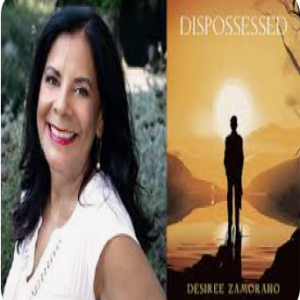
Thursday Apr 17, 2025
Thursday Apr 17, 2025
Notes and Links to Désirée Zamorano’s Work
Born and raised in Los Angeles, Désirée Zamorano is the previous author of novels like The Amado Women and Human Cargo. Zamorano heavily focuses on the issues of invisibility, injustice and inequity in her books while also teaching linguistic and cultural diversity at Cal State Long Beach.
Article about Dispossessed for Pasadena Weekly
At about 3:10, Desiree gives ordering information for The Dispossessed and her social media and contact information
At about 4:30, Desiree talks about an exciting 2026 publication
At about 5:10, Desiree gives background on her early reading and language life, and how her identity has been shaped throughout the years, influenced by family and larger societal forces
At about 8:40, Pete and Desiree discuss connections between American racism in different times and the events that inspired her own book
At about 10:00, Desiree provides feedback on seeds for her book
At about 12:30, Desiree talks about formative and informative books and writers from her childhood and adolescence
At about 13:35, Desiree shouts out Kate Atkinson and David Mitchell’s Cloud Atlas and other contemporary favorites
At about 14:35, the two explore the book’s opening note, and Desiree shares stunning (or not stats) about Mexican and Mexican-American “repatriation” in the 1930s and 1940s
At about 16:00, Desiree talks about Manzanar and Japanese incarceration and coalitions who have fought to have the ugly history of the incarceration shared
At about 17:25, The two discuss the book’s opening scene at the beach and the book’s inciting incidents
At about 18:40, Desiree gives background on her reasoning for making the book’s opening so action-packed and connections to a chilling quote
At about 19:50, Pete and Desiree chart Manuel’s first years after his parents are taken, and characters and situations that govern Manuel’s life
At about 23:15, Desiree responds to Pete’s questions about Manuel’s surrogate mother, Amparo and depictions of Christianity with connections to Desiree’s own family
At about 26:00, The two discuss reasons as to why Manuel decides to leave high school
At about 28:10, Desiree gives background on sundown towns and talks about misconceptions of racism in our country’s history and all needing to “do the work” to understand
At about 31:15, Pete recounts a stunning (or not so stunning) fact about racism in CA and Rodney King
At about 31:55, Desiree responds to Pete’s questions about depictions of Latino soldiers, particularly in WWII
At about 33:25, Pete and Desiree discuss Manuel’s early work experience, and Desiree expands upon union histories, especially in LA
At about 36:00, Decade of Betrayal, Anything but Mexican and Whitewashed Adobe are discussed as thorough and key research used by Desiree for the book
At about 37:30, Pete asks Desiree about important touches in the book, and she provides important histories of whiteness in American and how birth certificates were filled out
At about 41:00, The two discuss the impending razing of Chavez Ravine in the book, and hope and hopelessness for Manuel-Desiree references another great book with great research, From Out of the Shadows by Vicki Ruiz
At about 44:30, Desiree responds to Pete’s question about crafting a emotional and good man in Manuel
At about 47:00, Pete is highly complimentary of the ways that Desiree uses light touches and writes about fatherhood and motherhood so honestly
At about 50:00, Pete asks Desiree how she knew the book was finished
You can now subscribe to the podcast on Apple Podcasts, and leave a five-star review. You can also ask for the podcast by name using Alexa, and find the pod on Stitcher, Spotify, and on Amazon Music. Follow Pete on IG, where he is @chillsatwillpodcast, or on Twitter, where he is @chillsatwillpo1. You can watch other episodes on YouTube-watch and subscribe to The Chills at Will Podcast Channel. Please subscribe to both the YouTube Channel and the podcast while you’re checking out this episode.
Pete is very excited to have one or two podcast episodes per month featured on the website of Chicago Review of Books. The audio will be posted, along with a written interview culled from the audio. This week, his conversation with Episode 270 guest Jason De León is up on the website. A big thanks to Rachel León and Michael Welch at Chicago Review.
Sign up now for The Chills at Will Podcast Patreon: it can be found at patreon.com/chillsatwillpodcastpeterriehl
Check out the page that describes the benefits of a Patreon membership, including cool swag and bonus episodes. Thanks in advance for supporting Pete’s one-man show, his DIY podcast and his extensive reading, research, editing, and promoting to keep this independent podcast pumping out high-quality content!
This month’s Patreon bonus episode will feature an exploration of the wonderful poetry of Khalil Gibran.
Pete has added a $1 a month tier for “Well-Wishers” and Cheerleaders of the Show.
This is a passion project of Pete’s, a DIY operation, and he’d love for your help in promoting what he’s convinced is a unique and spirited look at an often-ignored art form.
The intro song for The Chills at Will Podcast is “Wind Down” (Instrumental Version), and the other song played on this episode was “Hoops” (Instrumental)” by Matt Weidauer, and both songs are used through ArchesAudio.com.
Please tune in for Episode 281 with Alexander Chee, who is the bestselling author of the novels Edinburgh and The Queen of the Night, and the essay collection How To Write An Autobiographical Novel. He was the 2021 US Artists Fellow and Guggenheim Fellow in Nonfiction, and he is full professor of English and Creative Writing at Dartmouth.
The episode airs on April 22.
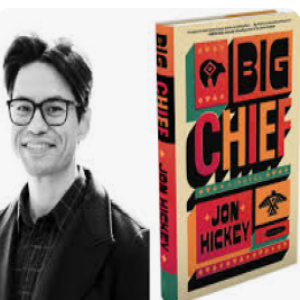
Tuesday Apr 08, 2025
Tuesday Apr 08, 2025
Notes and Links to Jon Hickey’s Work
Jon Hickey is a writer from Minnesota. He earned an MFA from Cornell University and was a Stegner Fellow in fiction at Stanford University. His short stories have appeared in numerous journals such as Virginia Quarterly Review, Gulf Coast, and the Massachusetts Review, among other places.
He is a member of the Lac du Flambeau Band of Chippewa Indians (Anishinaabe). He lives in San Francisco with his wife and two sons.
Book Review for Big Chief in San Francisco Chronicle
At about 1:35, Jon talks about his mindset and early feedback for his novel as Pub Day approaches
At about 3:25, Jon gives out social media and contact info and talks about book events that are upcoming
At about 5:15, “Midwest/Minnesota Nice” is discussed
At about 8:45, Jon mentions exciting advance praise for Big Chief
At about 9:45, Jon gives background on language loss in his family, as his grandparents were the “boarding school generation”
At about 11:30, Jon talks about how Anishinaabe functions as a language, and how it is both in his DNA and “mysterious”
At about 13:15, John traces his childhood reading, including Stephen King as a transformative writer
At about 17:20, John chronicles inspiring and thrilling writers and works and the wonderful writing programs he was part of
At about 18:20, Jon charts the huge imprint that Ralph Ellison’s Invisible Man has left on him
At about 22:00, Kyle Edwards and his Small Ceremonies, as well as Kate Folk and her Sky Daddy , are mentioned as contemporary works/writers who thrill and challenge Jon
At about 24:20, Pete lays out some of Big Chief’s exposition
At about 25:55, Jon responds to Pete asking about how Jon pictures the book’s narrator and protagonist
At about 29:00, Mack, the tribal president in the book, is described
At about 30:00, Jon responds to Pete wondering about motivations for Mitch related to bullying and feelings of being an outsider from his childhood
At about 32:15, Ideas of power in politics are discussed
At about 34:10, Ideas of authenticity and genuineness and morality are discussed, in connection to politics and voting in the book and beyond, especially regarding Joe Beck
At about 35:40, Jon riffs on what he kept in mind while writing the book, with regard to moralizing as an author
At about 39:00, Jon responds to Pete’s question about blood quantum and similar ideas and how the discourses have changed or not
At about 42:40, Jon talks about tropes and irony and “outward signs” of being indigenous, and how that is reflected in his book’s cover and in society at large
At about 43:40, The title and its inspiration is discussed
At about 45:50, Jon reads a representative excerpt that speaks of themes of belonging, and Pete and Jon further discuss ideas of childhood’s impacts on adulthood
At about 47:15, Jon discusses the significance of Mack’s protection of Mitch, and Mitch’s self-esteem and power’s connection to cynicism
At about 51:10, Mack and his bearing and his motivations are discussed
At about 52:00, a pivotal and tragic event-Mitch’s mother’s death-and the subsequent fire vigil is discussed
At about 55:45, The book’s upcoming election and sabotage and Gloria are discussed, with a tip of the cat to Harvey Keitel in calling Mitch a “fixer”
At about 1:00:20, Mitch and his cynicism and his work on the campaign are explored, with connections to current political climates
At about 1:02:15, the platforms of the two candidates and ideas of banishment from the tribe are considered
At about 1:05:50, Pete wonders if Mack is a Trump-ish figure, and Jon reflects on how he has tried to write about identity through tribal politics
At about 1:10:00, Pete and Jon ponder the “void” within Mitch and talk about the local political and larger political world collide
At about 1:12:05, Pete compliments the “beautiful” ending, and the two discuss the Sopranos ending, and Jon discusses his mindset in crafting his book’s ending
At about 1:14:40, Jon outlines changes in the book’s previous permutations
At about 1:16:40, Jon defines what is what for him a “work of art”
You can now subscribe to the podcast on Apple Podcasts, and leave a five-star review. You can also ask for the podcast by name using Alexa, and find the pod on Stitcher, Spotify, and on Amazon Music. Follow Pete on IG, where he’s @chillsatwillpodcast, or on Twitter, where he’s @chillsatwillpo1. You can watch other episodes on YouTube-watch and subscribe to The Chills at Will Podcast Channel. Please subscribe to both the YouTube Channel and podcast while you’re checking out this episode.
Pete is very excited to have one or two podcast episodes per month featured on the website of Chicago Review of Books. The audio will be posted, along with a written interview culled from the audio. His conversation with Episode 270 guest Jason De León is up on the website this week. A big thanks to Rachel León and Michael Welch at Chicago Review.
Sign up now for The Chills at Will Podcast Patreon: it can be found at patreon.com/chillsatwillpodcastpeterriehl
Check out the page that describes the benefits of a Patreon membership, including cool swag and bonus episodes. Thanks in advance for supporting Pete’s one-man show, DIY podcast and my extensive reading, research, editing, and promoting to keep this independent podcast pumping out high-quality content!
This month’s Patreon bonus episode will feature an exploration of the wonderful poetry of Khalil Gibran.
Pete has added a $1 a month tier for “Well-Wishers” and Cheerleaders of the Show.
This is a passion project of Pete’s, a DIY operation, and he’d love for your help in promoting what he’s convinced is a unique and spirited look at an often-ignored art form.
The intro song for The Chills at Will Podcast is “Wind Down” (Instrumental Version), and the other song played on this episode was “Hoops” (Instrumental)” by Matt Weidauer, and both songs are used through ArchesAudio.com.
Please tune in for Episode 280 with Jahmal Mayfield, who writes gritty crime novels that touch on large social issues. His stellar SMOKE KINGS was inspired by Kimberly Jones’ passionate viral video, “How can we win?”
The episode airs on April 15.
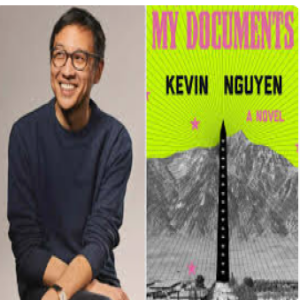
Tuesday Apr 08, 2025
Tuesday Apr 08, 2025
Notes and Links to Kevin Nguyen’s Work
Kevin Nguyen is the features editor at The Verge, previous senior editor at GQ; has written for New York Magazine, The New York Times, The Paris Review and elsewhere the author of New Waves and the novel Mỹ Documents, which has today, April 8, as Pub Day.
Book Review for My Documents in Los Angeles Times
At about 1:20, Kevin talks about his mindset and feedback around My Documents as the book nears Pub Day
At about 3:00, Kevin provides info on his publishing company, places to buy his book, and book launch events, as well as social media/contact info
At about 6:15, Kevin gives background on his language and reading history
At about 9:50, Kevin charts the reading and writers who put him on the path to becoming a writer himself
At about 13:15-Tracy O’Neill and Alexander Chee shout outs!
At about 14:55, Kevin shouts out some beloved contemporary writers like Vauhini Vara, Jon Hickey, Darrell Campbell,
At about 17:25, Kevin gives a summary of the book and describes seeds for his book, with “echoes” of Japanese incarceration during WWII, among other catalysts
At about 19:05, Kevin responds to Pete's questions about John McCain’s connections to the book and its epigraph
At about 21:35, The two trace the book’s exposition and the narrator’s grandmother’s choices in emigrating from Vietnam
At about 24:20, Kevin talks about Ursula’s experiences in the book and connections to second-generations from immigrant families and passing down family stories
At about 26:05, Kevin waxes poetic on Babe: Pig in the City, and its connections to the book
At about 30:00, Kevin talks about building characters who are well-rounded
At about 31:10, the two trace Jen and Alvin and formative experiences in the book, including Alvin’s being pushed into learning more Asian-American history
At about 34:20, Kevin responds to Pete’s questions about expectations subverted
You can now subscribe to the podcast on Apple Podcasts, and leave a five-star review. You can also ask for the podcast by name using Alexa, and find the pod on Stitcher, Spotify, and on Amazon Music. Follow Pete on IG, where he’s @chillsatwillpodcast, or on Twitter, where he’s @chillsatwillpo1. You can watch other episodes on YouTube-watch and subscribe to The Chills at Will Podcast Channel. Please subscribe to both the YouTube Channel and podcast while you’re checking out this episode.
Pete is very excited to have one or two podcast episodes per month featured on the website of Chicago Review of Books. The audio will be posted, along with a written interview culled from the audio. His conversation with Episode 265 guest Carvell Wallace is up on the website this week. A big thanks to Rachel León and Michael Welch at Chicago Review.
Sign up now for The Chills at Will Podcast Patreon: it can be found at patreon.com/chillsatwillpodcastpeterriehl
Check out the page that describes the benefits of a Patreon membership, including cool swag and bonus episodes. Thanks in advance for supporting Pete’s one-man show, DIY podcast and my extensive reading, research, editing, and promoting to keep this independent podcast pumping out high-quality content!
This month’s Patreon bonus episode will feature an exploration of the wonderful poetry of Khalil Gibran.
Pete has added a $1 a month tier for “Well-Wishers” and Cheerleaders of the Show.
This is a passion project of Pete’s, a DIY operation, and he’d love for your help in promoting what he’s convinced is a unique and spirited look at an often-ignored art form.
The intro song for The Chills at Will Podcast is “Wind Down” (Instrumental Version), and the other song played on this episode was “Hoops” (Instrumental)” by Matt Weidauer, and both songs are used through ArchesAudio.com.
Please tune in for Episode 279 with Jon Hickey, a member of the Lac du Flambeau Band of Chippewa Indians, whose short stories have appeared in numerous journals such as Virginia Quarterly Review and the Massachusetts Review, among others. His highly-anticipated novel, Big Chief, is out today, April 8.
The episode airs today, April 8.

Wednesday Apr 02, 2025
Wednesday Apr 02, 2025
Notes and Links to Douglas J. Weatherford’s Work
Doug was born in Salt Lake City but grew up in Statesboro, Georgia, where his father taught German at Georgia Southern University. Doug loves to read, travel, and ride bicycles and motorcycles. He graduated from BYU in 1988 (BA Spanish) and the Pennsylvania State University in 1997 (PhD Latin American Literature). He has been a professor at BYU since 1995. Doug’s research and teaching emphases include Latin American literature and film, representations of the period of Discovery and Conquest, and Mexico at mid-Century (1920–1968, with particular focus on Rosario Castellanos and Juan Rulfo). His latest are new translations of Pedro Páramo and The Burning Plain.
Buy Pedro Páramo (English Translation)
New York Times Book Review of Pedro Páramo by Valeria Luiselli
At about 2:15, Doug talks about his “journey” to becoming a professor of Latin-American Literature and Film, with regard to his early language and reading backgrounds
At about 6:00, Doug talks about his main focus in teaching over the years
At about 7:15, The two discuss linguistics classes
At about 8:30, Doug responds to Pete’s questions about texts and writers who have resonated with his students
At about 10:30, Doug reflects on Jorge Luis Borges’ work and potential for teachability
At about 11:35, The two talk about translations of Rulfo’s titles
At about 13:30, Doug gives a primer on the collection El Llano en llamas and its various translations
At about 16:40, Doug emphasizes the need to “follow in Rulfo’s footsteps” in translating the famous story “No Oyes Ladrar los Perros”
At about 20:15, Doug responds to Pete’s question about Juan Rulfo’s evolving reputation/legacy in Mexico
At about 24:15, Pete shares compliments and blurbs for Doug’s Pedro Páramo translation and Pete and Doug talk about Gabriel Garcia Marquez’s important Foreword
At about 27:20, Doug gives background on screenplays done for Rulfo’s work by Marquez and towering respect for Rulfo’s work, especially Pedro Páramo
At about 28:20, The two talk about Pedro Páramo’s movie adaptations and challenges in adapting the work with connection to older characters
At about 31:55, Pete and Doug reflect on key archetypes and connections featured in the first line of Pedro Páramo
At about 35:00, Doug gives background on his decision-making that affected his translations, including the laser-focus on the book’s first line
At about 41:00, The two discuss the book’s exposition, such as it in a chronologically-unique book, including the book’s first narrator’s role
At about 42:55, Doug discusses the connections in the book: Citizen Kane and Pedro Páramo, as well as Hernán Cortes and Pedro Páramo
At about 46:30, Doug talks about La Lllorona and Malinche and Páramo connections
At about 49:30, Doug gives background on Pedro's son, Miguel and Father Renteria and ideas of betrayal and Biblical archetypes
At about 52:35, Themes of sin and afterlife, including purgatory, are discussed, as Doug gives background on Rulfo’s “conflicted” views regarding Catholicism
At about 55:30, Doug goes into greater depth about the links between Citizen Kane and Pedro Páramo
At about 59:45, Doug responds to Pete’s question about
At about 1:02:00, Doug responds to Pete’s question about Rulfo’s treatment of Mexican “Indians”
At about 1:04:20, Hope and misogyny as a theme in the novel are discussed, and Doug discusses the 2024 Rodrigo Prieto Pedro Páramo film
At about 1:09:40, Doug “puts a spin” on the novel’s ending
At about 1:15:45, Doug gives book buying information for his translations of Rulfo’s work
You can now subscribe to the podcast on Apple Podcasts, and leave me a five-star review. You can also ask for the podcast by name using Alexa, and find the pod on Stitcher, Spotify, and on Amazon Music. Follow Pete on IG, where he is @chillsatwillpodcast, or on Twitter, where he is @chillsatwillpo1. You can watch other episodes on YouTube-watch and subscribe to The Chills at Will Podcast Channel. Please subscribe to both the YouTube Channel and the podcast while you’re checking out this episode.
Pete is very excited to have one or two podcast episodes per month featured on the website of Chicago Review of Books. The audio will be posted, along with a written interview culled from the audio. My conversation with Episode 270 guest Jason De León is up on the website this week. A big thanks to Rachel León and Michael Welch at Chicago Review.
Sign up now for The Chills at Will Podcast Patreon: it can be found at patreon.com/chillsatwillpodcastpeterriehl
Check out the page that describes the benefits of a Patreon membership, including cool swag and bonus episodes. Thanks in advance for supporting Pete’s one-man show, his DIY podcast and his extensive reading, research, editing, and promoting to keep this independent podcast pumping out high-quality content!
This month’s Patreon bonus episode will feature an exploration of the wonderful poetry of Khalil Gibran.
I have added a $1 a month tier for “Well-Wishers” and Cheerleaders of the Show.
This is a passion project of Pete’s, a DIY operation, and he’d love for your help in promoting what he’s convinced is a unique and spirited look at an often-ignored art form.
The intro song for The Chills at Will Podcast is “Wind Down” (Instrumental Version), and the other song played on this episode was “Hoops” (Instrumental)” by Matt Weidauer, and both songs are used through ArchesAudio.com.
Please tune in for Episode 278 with Kevin Nguyen, features editor at The Verge, previous senior editor at GQ. He has written for New York Magazine, The New York Times, The Paris Review and elsewhere, and is the author of New Waves and the novel Mỹ Documents, which has April 8, the same day the episode airs, as its Pub Day.
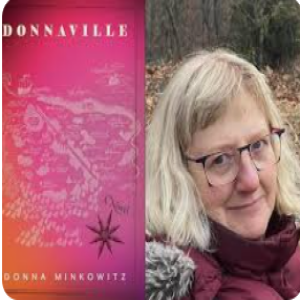
Tuesday Mar 18, 2025
Tuesday Mar 18, 2025
Notes and Links to Donna Minkowitz’s Work
Donna Minkowitz is a writer of fiction and memoir who author Mary Gaitskill has celebrated as “original, energetic, witty, and meaty.” Andrew Solomon dubbed her “utterly entrancing… a writer with breathtakingly fluent language.” She is also the author of the fantasy-influenced memoir Growing Up Golem and the memoir Ferocious Romance, about being an openly lesbian reporter covering the Christian right undercover. Growing Up Golem was a finalist for both a Lambda Literary Award and for the Publishing Triangle’s Judy Grahn Nonfiction Award, and Ferocious Romance won a Lambda Literary Award. Donna, a former columnist for the Village Voice and The Advocate, has also written for the New York Times Book Review, The Nation, Salon, Slate, and New York magazine.
DONNAVILLE, her first novel and third book, was recently published by Indolent Books.
Book Review for Donnaville from Kirkus Reviews
At about 2:05, Donna provides background on her formative reading and writing years
At about 3:40, Pete and Donna talk about the benefits of reading works a bit too old for them
At about 5:05, Donna responds to Pete’s questions about the Torah and how its stories affected her writing
At about 6:30, Donna talks about formative and transformative writers, including poets and Greek mythology
At about 8:05, Donna responds to Pete’s questions about representation in discussing the significance of Sappho’s work
At about 10:25, Donna discusses the nuances of the word “queer” and generational usages
At about 14:00, Pete and Donna stan Honor Thy Father by Gay Talese, which receives a shout out in Donnaville
At about 17:20, Donna expands on writers who inspired her as a high school and college student; she talks about the complicated legacy and work of Tolkien
At about 21:30, Pete asks Donna and how the detail shown in Donnaville connects to her work as an esteemed journalist
At about 23:40, Donna talks about her undercover journalism work, including a memorable white nationalism conference and purported former Olympic hopeful
At about 26:40, Donna talks about the book’s opening scene and connections to her real life, with regard to therapy and therapists and ways of finding growth
At about 31:55, Pete describes the book’s exposition and compliments Donna’s
At about 34:05, Donna cites Denise Levertov’s and Delmore Schwartz’s (“Narcissus”) work as inspiration for her book featuring a city inside her mind; Pete cites another wonderful Schwartz text, “In Dreams Begin Responsibilities”
At about 36:40, Donna talks about Foucault and resistance in connection to an evocative line from her book
At about 37:20, Donna expands upon how there are two characters in the book who are not pieces of her, and she explains the significance of Harlequin in the book
At about 41:45, Donna responds to Pete’s question about the lying nature of Harlequin
At about 44:15, Donna and Pete explore ideas of connection and confusion between abusers and their young victims
At about 47:50, Donna talks about early “action” that Donna in the book is urged to take
At about 49:40, Pete highlights a beautiful quote regarding the “sacred divine” and Donna talks about expectations of hurt
At about 50:30, The two discuss the contradictions of the book’s jailer, and Donna further discusses ideas of shame
At about 53:25, Donna expands on how she sees parts of her life and family in certain characters in the book
At about 54:40, Pete shouts out a story, William Carlos Willams’ “The Use of Force,” that explores ideas of sadism in similar ways as Donnaville
At about 55:50, Donna muses over ideas of self-care, emotional regulation, and structure in our lives featured in the book
At about 57:35, Pete gives details about the book’s main focus, and Donna responds to his observations about Donnaville as “a happily queer book” as she also expands upon pleasures found in the book
At about 1:02:05, Pete cites traumas alluded to in the book and a deep quote about traumas emerging in people’s lives
At about 1:04:10, Donna ponders Pete’s question about a nurturing group of older people and connects the book to Joseph Campbell’s “Hero's Journey”
At about 1:07:30, Pete and Donna discuss a possible animated movie based on the book and possible voice actors
At about 1:09:25, Donna shouts out as bookstores to buy her book, such as The Bureau of General Services, Queer Division, Stanza Books and Binnacle Books
You can now subscribe to the podcast on Apple Podcasts, and leave me a five-star review. You can also ask for the podcast by name using Alexa, and find the pod on Stitcher, Spotify, and on Amazon Music. Follow Pete on IG, where he is @chillsatwillpodcast, or on Twitter, where he is @chillsatwillpo1. You can watch other episodes on YouTube-watch and subscribe to The Chills at Will Podcast Channel. Please subscribe to both the YouTube Channel and the podcast while you’re checking out this episode.
Pete is very excited to have one or two podcast episodes per month featured on the website of Chicago Review of Books. The audio will be posted, along with a written interview culled from the audio. This week, his conversation with Episode 255 guest Chris Knapp is up on the website. A big thanks to Rachel León and Michael Welch at Chicago Review.
Sign up now for The Chills at Will Podcast Patreon: it can be found at patreon.com/chillsatwillpodcastpeterriehl
Check out the page that describes the benefits of a Patreon membership, including cool swag and bonus episodes. Thanks in advance for supporting Pete’s one-man show, his DIY podcast and his extensive reading, research, editing, and promoting to keep this independent podcast pumping out high-quality content!
This month’s Patreon bonus episode will feature an exploration of the wonderful poetry of Khalil Gibran.
I have added a $1 a month tier for “Well-Wishers” and Cheerleaders of the Show.
This is a passion project of Pete’s, a DIY operation, and he’d love for your help in promoting what he’s convinced is a unique and spirited look at an often-ignored art form.
The intro song for The Chills at Will Podcast is “Wind Down” (Instrumental Version), and the other song played on this episode was “Hoops” (Instrumental)” by Matt Weidauer, and both songs are used through ArchesAudio.com.
Please tune in for Episode 277 with Jahmal Mayfield, who writes gritty crime novels that touch on large social issues. His stellar SMOKE KINGS was inspired by Kimberly Jones’ passionate viral video, “How can we win?”
The episode airs on March 25.
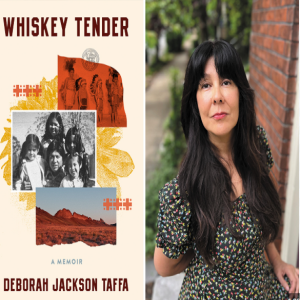
Monday Mar 10, 2025
Monday Mar 10, 2025
Notes and Links to Deborah Taffa-Jackson’s Work
Deborah Jackson Taffa is a citizen of the (Quatzahn) Quechan (Yuma) Nation and Laguna Pueblo. She earned her MFA at the Nonfiction Writing Program at the University of Iowa and is the Director of the MFA in Creative Writing at the Institute of American Indian Arts in Santa Fe, New Mexico. Named Top 10 Book of the Year by Atlantic Magazine, and Top 10 Nonfiction Book by Time Magazine.
Book Review for Whiskey Tender from Washington Post
At about 1:30, Deborah reflects on and expands on her experience in being a finalist for The National Book Award
At about 5:30, Pete shares some laudatory feedback for her memoir and Deborah shouts out Birchbark Books, Collected Works, Left Bank Books, as some great places to buy her book
At about 7:30, Deborah shares some wonderful invitations she’s received to discuss her book and her art
At about 9:05, Deborah explains how she “reverse-engineered” the book with regard to research and personal stories
At about 10:20, Deborah responds to Pete’s questions about her early reading and language life and how her formal and informal education was affected by her family’s histories
At about 15:45, Deborah gives background on her “autodidactic,” transformative learning, study, reading, and traveling that helped her
At about 19:00, Deborah traces the throughlines of colonization in seemingly-disparate groups
At about 22:20, Deborah discusses the significance of her epigraph on “ceremony”
At about 26:25, Billy Ray Belcourt is cited as Pete and Deborah talk about the speculative and aspirational writing
At about 27:55, Pete and Deborah reflect on ideas of indigenous invisibility as evidenced in a memorable scene from Whiskey Tender
At about 29:40, Deborah cites a “shocking” study n her college textbook that speaks to how many Americans view Native American women, and how it provided fodder and stimulus for her memoir
At about 31:25, the two discuss a flashback scene that begins the book and the idea of “mirages” as discussed in the opening scene
At about 35:20, Pete asks Deborah to expand upon a resonant line from her book about meaningful childhood experiences
At about 37:35, Deborah talks about historical silences in her family and in others
At about 39:40, Deborah talks about the intensive historical research done in the last year before the book was published
At about 40:55, The two discuss similarities regarding generation gaps in indigenous groups and immigrant and traditionally-marginalized groups
At about 42:40, Deborah talks about the lore of Sarah Winnemucca in her family and “her savvi[ness] and revisionist history
At about 46:25, Pete and Deborah talk about the “flattening” of American Indian stories and pivotal government treaties and reneging on deals by the American government
At about 48:00, Pete and Deborah reflect on contemporary connections to previous American policies
At about 50:20, The two discuss a representative story about “lateral violence” and belonging and ostracism that affected Deborah at a young age
At about 53:00, Counternarratives to myths about indigenous peoples and movement are discussed
At about 57:20,
At about 59:40, Pete is highly complimentary of Deborah’s writing about her grandmother’s genuine and wonderful nature, and Deborah expands on her grandmother’s cancer diagnosis and outlook and lasting influence
At about 1:02:30, Pete highlights a wonderful closing scene about time and place and home
You can now subscribe to the podcast on Apple Podcasts, and leave me a five-star review. You can also ask for the podcast by name using Alexa, and find the pod on Stitcher, Spotify, and on Amazon Music. Follow Pete on IG, where he is @chillsatwillpodcast, or on Twitter, where he is @chillsatwillpo1. You can watch other episodes on YouTube-watch and subscribe to The Chills at Will Podcast Channel. Please subscribe to both the YouTube Channel and the podcast while you’re checking out this episode.
Pete is very excited to have one or two podcast episodes per month featured on the website of Chicago Review of Books. The audio will be posted, along with a written interview culled from the audio. This week, his conversation with Episode 255 guest Chris Knapp is up on the website. A big thanks to Rachel León and Michael Welch at Chicago Review.
Sign up now for The Chills at Will Podcast Patreon: it can be found at patreon.com/chillsatwillpodcastpeterriehl
Check out the page that describes the benefits of a Patreon membership, including cool swag and bonus episodes. Thanks in advance for supporting Pete’s one-man show, his DIY podcast and his extensive reading, research, editing, and promoting to keep this independent podcast pumping out high-quality content!
This month’s Patreon bonus episode will feature an exploration of the wonderful poetry of Khalil Gibran.
I have added a $1 a month tier for “Well-Wishers” and Cheerleaders of the Show.
This is a passion project of Pete’s, a DIY operation, and he’d love for your help in promoting what he’s convinced is a unique and spirited look at an often-ignored art form.
The intro song for The Chills at Will Podcast is “Wind Down” (Instrumental Version), and the other song played on this episode was “Hoops” (Instrumental)” by Matt Weidauer, and both songs are used through ArchesAudio.com.
Please tune in for Episode 276 with Donna Minkowitz, a writer of fantasy, memoir, and journalism lauded by Lilith Magazine for her “fierce imagination and compelling prose.” Her first book, Ferocious Romance, won a Lambda Literary Award for Best Book On Religion/Spirituality, and her most recent memoir was Growing Up Golem, a finalist for both a Lambda Literary Award and Judy Grahn Nonfiction Award. She is also the author of the novel DONNAVILLE, published in 2024.
The episode airs on March 18.

Wednesday Mar 05, 2025
Wednesday Mar 05, 2025
Notes and Links to Annell Lopez’s Work
Annell López is the winner of the Louise Meriwether First Book Prize and the author of the short story collection I’LL GIVE YOU A REASON from the Feminist Press. A Peter Taylor Fellow at the Kenyon Review Writers Workshops, her work has also received support from Tin House and has appeared in Guernica, American Short Fiction, Michigan Quarterly Review, Brooklyn Rail, The Common, Refinery29 and elsewhere. López received her MFA from the University of New Orleans. She is working on a novel.
For The Rumpus: “There’s Always a Little Light, a Glimmer of Hope: A Conversation with Annell López”
At about 2:05, Annell talks about her early relationship with bilingualism,
At about 4:50, Annell shouts ut the “great place” that is Newark, NJ, and recounts early memories after her immigration
At about 6:25, Annell talks about how learning English helped her develop her already burgeoning writing ability
At about 8:25, Annell highlights Garcia Marquez’s work in Spanish
At about 9:35, Annell lists books and writers that were formative and transformative for her
At about 13:25, Deesha Philyaw, Carlos Maurice Ruffin, Danielle Evans, and Chris Stuck, are referenced as inspiring contemporary writers
At about 14:40, Annell talks about seeds for her short story collection and its makeup
At about 16:10, the two discuss the collection’s first story and the title character’s anxiety around possible deportation
At about 19:05, Annell reflects on the dynamics of older sibling and young sibling and mother-daughter relationships, as evidenced in the “Dark Vader”
At about 20:30, Annell responds to Pete’s questions about colorism as shown in some of her stories
At about 22:35, from “Dark Vader,” a “problematic” Mateo is discussed, along with power dynamics, and Vanessa’s reluctance to pass her GED
At about 27:00, Annell talks about a character’s unnamed bipolar condition, and his son’s motivations in being angry towards his father
At about 30:30, Pete asks about online news madness as referenced in the story collection
At about 32:35, Pete links two stories and the two talk about gentrification and its treatment in the collection, and Pete is complimentary of Annell’s plot structure and what is “left unsaid”
At about 34:35, “Love gone stale” as a theme of the book is lauded and discussed
At about 37:00, Grief and depression and the bird and beautiful “Bear Hunting Season” are discussed
At about 41:30, Annell talks about how her teaching did and did not inform the treatment of teachers in her collection
At about 44:30, Trauma in its many forms in the collection is discussed
At about 45:45, The two explore the title story and its focus on emotional response
At about 47:50, Pete highlights a story that focuses on objectification and racism and Annell’s apt second-person usage and diction; she focuses on the story’s universality and realism
At about 50:05, “The Other Carmen” is explored, including ideas of body shaming, body positivity
At about 52:40, Annell explains some “Easter eggs” and “crossover characters” and Pete is complimentary of story endings
At about 53:40, Pete asks Annell about the importance of staged photoshoots in a story in the collection
At about 55:55, Annell talks about the importance of titles after Pete cites her prowess with same
At about 57:45, Pete fanboys about the collection’s last story
At about 59:30, Annell responds to Pete’s question about significance of the collection
At about 1:00:45, Annell gives social media and other contact info
You can now subscribe to the podcast on Apple Podcasts, and leave me a five-star review. You can also ask for the podcast by name using Alexa, and find the pod on Stitcher, Spotify, and on Amazon Music. Follow Pete on IG, where he is @chillsatwillpodcast, or on Twitter, where he is @chillsatwillpo1. You can watch other episodes on YouTube-watch and subscribe to The Chills at Will Podcast Channel. Please subscribe to both the YouTube Channel and the podcast while you’re checking out this episode.
Pete is very excited to have one or two podcast episodes per month featured on the website of Chicago Review of Books. The audio will be posted, along with a written interview culled from the audio. His latest conversation, with Episode 265 guest Carvell Wallace, is up on the website. A big thanks to Rachel León and Michael Welch at Chicago Review.
Sign up now for The Chills at Will Podcast Patreon: it can be found at patreon.com/chillsatwillpodcastpeterriehl
Check out the page that describes the benefits of a Patreon membership, including cool swag and bonus episodes. Thanks in advance for supporting Pete’s one-man show, his DIY podcast and his extensive reading, research, editing, and promoting to keep this independent podcast pumping out high-quality content!
This month’s Patreon bonus episode will feature an exploration of the wonderful poetry of Khalil Gibran.
I have added a $1 a month tier for “Well-Wishers” and Cheerleaders of the Show.
This is a passion project of Pete’s, a DIY operation, and he’d love for your help in promoting what he’s convinced is a unique and spirited look at an often-ignored art form.
The intro song for The Chills at Will Podcast is “Wind Down” (Instrumental Version), and the other song played on this episode was “Hoops” (Instrumental)” by Matt Weidauer, and both songs are used through ArchesAudio.com.
Please tune in for Episode 275 with Deborah Jackson-Taffa, whose 2024 memoir Whiskey Tender was a finalist for the 2024 National Book Award for Nonfiction; earned a MFA in nonfiction writing from the Univ of IA; director of the MFA creative writing program at the Institute of American Indian Arts in Santa Fe, NM
The episode airs on March 11.
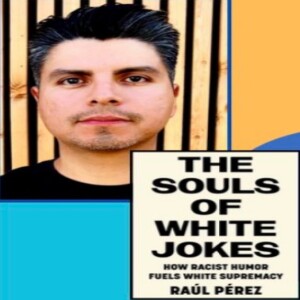
Monday Feb 24, 2025
Monday Feb 24, 2025
Notes and Links to Raúl Perez’s Work
Raul Pérez is an Associate Professor of Sociology at University of La Verne. He is also the author of The Souls of White Jokes: How Racist Humor Fuels White Supremacy (Stanford University Press, 2022).
Raul Perez's University of LaVerne Website
Book Review from Oxford Review: The Souls of White Jokes
At about 1:50, Raúl talks about his early language and reading journeys
At about 5:15, Raúl notes the greatness and importance and multi-generational pull of LAUSD’s coffee cake for the Perez family
At about 6:40, Raúl details his high school academic journey and some early inspiring reads-shout out, Mr. Taylor!
At about 9:05, Raúl talks about how college social scene readings and class discussions and formative and transformative professors changed his mindset
At about 12:45, Raúl shouts out Netflix’s Mo as a really “engaging…springboard for discussion”
At about 16:45, Raúl responds to Pete’s questions about how humor and its study made its way into his reading and scholarship
At about 23:00, Raúl talks about seeds for his writing about humor and race and graduate school goals
At about 24:45, Raúl responds to Pete’s question about being able to watch comedy without analyzing it
At about 25:50, Raúl recounts stories of his experience taking an ethnography class of humor/standup comedy, including the ways in which race and racism affects standup comedy
At about 27:50, Pete asks Raúl what he might do if he had a few minutes to do standup, and Raúl talks about racialized humor foisted upon him and others in a previous standup class
At about 32:00, Raúl reflects on comedians who successfully put in the work and “exercis[e] the funny bone” and “find the funny in everything”
At about 33:50, The two reflect on Dave Chappelle’s work and he and Bill Burr and others and how they deal with difficult/traumatic “material”
At about 38:00, Raúl and Pete talk about terminology n hs book and Raúl expands on his choice to avoid using the infamous hateful epithet
At about 40:50, Raúl talks about racism “behind-the-scenes” among police officers, sometimes with officers of color targeting Black officers
At about 42:15, Raúl talks about Latinos and Mexicans and conversations about anti-Blackness and Afro-Latinos role in these discussions
At about 44:35, Raúl talks about “cancelled” humor and skits on Saturday Night Live, including a legendary skit with Richard Pryor and Chevy Chase, and a pendulum effect with racial and racist humor
At about 49:00, Raúl segues into talking about Tom Metzger and WAR’s racist cartoons and Raúl’s book censoring racist language
At about 50:40, Pete outlines the book’s chapter titles and asks Raúl about licensing of racist cartoons used in his book; Raúl expands on Metzger’s and others usage
At about 54:40, Raúl details a controversial NY Post cartoon that depicted President Barack Obama
At about 56:15, Raúl responds to Pete’s question about connections between the racist humor towards President Obama and “whitelash” from recent years to the early years of the United States as a country, with President Trump a natural consequence
At about 1:04:25, Pete notes Raúl’s coined term of “amused contempt” and states his thesis of racist humor and its “social power”
At about 1:05:30, Raúl discusses the significance of the book’s title and connections to W.E. DuBois’ famous The Souls of White Folk
At about 1:10:10, Raúl reflects on the significance of minstrel and its racist legacy and ideas of shared humor at the “expensive of the racialized group”
At about 1:12:20, Pete recounts the book’s opening with the story of Cleon Brown and compliments Raúl’s tracing such a long history with the book
At about 1:15:00, Raúl talks about how sees Trump’s upcoming presidency and its connections to racist “humor” and how he is an avatar for those who have tired of “wokeism”
At about 1:17:00, Raúl expands on Trump 2.0 and those like Elon Musk who use meme culture and racist/”anti-PC” culture to ”weaponize humor”
At about 1:21:10, Raúl gives background on the study of “disparagement humor” and its effects, as studied by Thomas E. Ford
At about 1:24:00, Raúl talks about future writing subjects, including the “weaponization of humor in warfare,” like with the IDF in Gaza
You can now subscribe to the podcast on Apple Podcasts, and leave me a five-star review. You can also ask for the podcast by name using Alexa, and find the pod on Stitcher, Spotify, and on Amazon Music. Follow Pete on IG, where he is @chillsatwillpodcast, or on Twitter, where he is @chillsatwillpo1. You can watch other episodes on YouTube-watch and subscribe to The Chills at Will Podcast Channel. Please subscribe to both the YouTube Channel and the podcast while you’re checking out this episode.
Pete is very excited to have one or two podcast episodes per month featured on the website of Chicago Review of Books. The audio will be posted, along with a written interview culled from the audio. This week, his conversation with Episode 265 guest Carvell Wallace is up on the website. A big thanks to Rachel León and Michael Welch at Chicago Review.
Sign up now for The Chills at Will Podcast Patreon: it can be found at patreon.com/chillsatwillpodcastpeterriehl
Check out the page that describes the benefits of a Patreon membership, including cool swag and bonus episodes. Thanks in advance for supporting Pete’s one-man show, his DIY podcast and his extensive reading, research, editing, and promoting to keep this independent podcast pumping out high-quality content!
This month’s Patreon bonus episode will feature an exploration of the wonderful poetry of Khalil Gibran.
Pete has added a $1 a month tier for “Well-Wishers” and Cheerleaders of the Show.
This is a passion project of Pete’s, a DIY operation, and he’d love for your help in promoting what he’s convinced is a unique and spirited look at an often-ignored art form.
The intro song for The Chills at Will Podcast is “Wind Down” (Instrumental Version), and the other song played on this episode was “Hoops” (Instrumental)” by Matt Weidauer, and both songs are used through ArchesAudio.com.
Please tune in for Episode 274 with Annell López, winner of Louise Meriwether First Book Prize and the author of the short story collection I’LL GIVE YOU A REASON. She is a Peter Taylor Fellow at Kenyon Review Writers Workshops, and her work has appeared in American Short Fiction, Michigan Quarterly Review, and Refinery29, among others.
The episode airs on March 4.
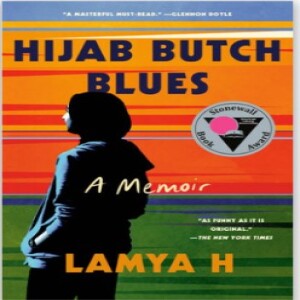
Wednesday Feb 19, 2025
Wednesday Feb 19, 2025
Notes and Links to Lamya H’s Work
Lamya H (she/they) is a queer Muslim writer and organizer living in New York City. Their memoir HIJAB BUTCH BLUES (February, 2023 from Dial Press/Penguin Randomhouse) won the Brooklyn Public Library Book Prize and a Stonewall Non-fiction Book Award, and was a finalist for Lambda Literary and Publishing Triangle Awards. Lamya’s work has appeared in Los Angeles Review of Books, Salon, Autostraddle, Vice, and others. She has received fellowships from Lambda Literary and Queer|Arts.
Lamya’s organizing work centers around creating spaces for LGBTQ+ Muslims, fighting Islamophobia, Palestine and prison abolition. In her free time, she eats lots of desserts baked by her partner, plays board games with whoever she can corral, and works on her goal of traveling to every subway stop in the city. She has never run a marathon.
Find her on Twitter and IG: @lamyaisangry
Book Review for Hijab Butch Blues from NPR
At about 2:20: Lamya shouts out Dominion as a top-tier board game and talks about flickering hopes of running a marathon
At about 5:35, Lamya talks about reading and writing and speaking in multiple languages growing up, as well as reading a lot of colonial texts from the British Empire
At about 7:30, Lamya talks about beijing “flabbergasted” by the great White Teeth at age 15
At about 9:30, Lamya uses the evocative image of “fish not understanding that they’re in water” in responding to Pete’s questions about how she recognized representation and colonial tropes in lit
At about 11:10, Lamya cites formative and transformative texts and authors in her adolescent year
At about 13:55, Lamya discusses early sparks for activism through a friend’s introduction of Audre Lorde, Angela Davis, and more
At about 15:15, Lamya responds to Pete’s questions about her current reading, including her love for Huda F’s work
At about 18:45, Lamya responds to Pete’s questions about her usage of “queer” and the titular “butch”
At about 22:30, The two discuss a meaningful Quranic verse that starts off the book-Lamya explains ideas of “faith in flux”
At about 25:00, Lamya gives background on surahs and a significant part of her book discussing Maryam’s life and trials
At about 26:45, Lamya discusses boredom in the high school years and how she felt connections to Maryam
At about 29:45, Lamya responds to Pete’s questions about feeling like life “is out of your control” as a teenager/high schooler
At about 30:45, Lamya explains feelings of internalizing queerness upon experiencing a crush at age 14
At about 34:50, Lamya describes the importance of Quranic verses involving Maryam and “intentionality” and taqwa
At about 38:00, Lamya responds to Pete’s questions about the “Arab hierarchy” that she experienced as a kid, and the ways in which she and her family were targets of racism
At about 41:40, Lamya details many meanings of “jinn” and describes its usage in her memoir
At about 43:40, Lamya describes a friend “jumpstarting” a repudiation of internalized racism
At about 45:15, Lamya gives background on Allah and ideas of “transcending” gender
At about 49:00, The two discuss “rigid gender roles” as featured in the memoir, as well as connections to the Biblical Adam
At about 50:00, Lamya outlines a offbeat “outing” experience
At about 51:30, Pete describe Musa’s connections to Lamya’s “coming out slowly process” and asks Lamya to comment-she talks about “reframing the negative”
At about 53:45, Lamya cites “inviting in” as a way of reframing the “coming out” trope
At about 55:35, Pete shouts out Christina Cooke’s quote of queerness as “divine”
At about 56:25, The two discuss empathetic and sensitive friends
At about 57:10, The Prophet Muhammed and connections to fealty and openness of fath and individuality are discussed
At about 59:50, The two discuss “being “comfortable” in one's own skin and finding community
At about 1:00:45, Lamya responds to Pete’s questions about Asiya and those who encourage and perpetuate victimizers, including about ideas of citizenship in a country that has so often victimized
At about 1:03:40, Pete shouts out great “plot” in the book and a dizzying scene painted so well by Lamya
At about 1:05:30: Lamya talks about hopes that her book and story can be universal while it is quite specific
At about 1:07:00, Lamya encourages people to “buy local”
You can now subscribe to the podcast on Apple Podcasts, and leave me a five-star review. You can also ask for the podcast by name using Alexa, and find the pod on Stitcher, Spotify, and on Amazon Music. Follow me on IG, where I’m @chillsatwillpodcast, or on Twitter, where I’m @chillsatwillpo1. You can watch other episodes on YouTube-watch and subscribe to The Chills at Will Podcast Channel. Please subscribe to both my YouTube Channel and my podcast while you’re checking out this episode.
I am very excited to have one or two podcast episodes per month featured on the website of Chicago Review of Books. The audio will be posted, along with a written interview culled from the audio. This week, my conversation with Episode 265 guest Carvell Wallace is up on the website. A big thanks to Rachel León and Michael Welch at Chicago Review.
Sign up now for The Chills at Will Podcast Patreon: it can be found at patreon.com/chillsatwillpodcastpeterriehl
Check out the page that describes the benefits of a Patreon membership, including cool swag and bonus episodes. Thanks in advance for supporting my one-man show, my DIY podcast and my extensive reading, research, editing, and promoting to keep this independent podcast pumping out high-quality content!
This month’s Patreon bonus episode will feature an exploration of the wonderful poetry of Khalil Gibran.
I have added a $1 a month tier for “Well-Wishers” and Cheerleaders of the Show.
This is a passion project of mine, a DIY operation, and I’d love for your help in promoting what I’m convinced is a unique and spirited look at an often-ignored art form.
The intro song for The Chills at Will Podcast is “Wind Down” (Instrumental Version), and the other song played on this episode was “Hoops” (Instrumental)” by Matt Weidauer, and both songs are used through ArchesAudio.com.
Please tune in for Episode 273 with Raúl Perez. He is an Associate Professor of Sociology at University of La Verne and the author of The Souls of White Jokes: How Racist Humor Fuels White Supremacy. His work has been published in American Behavioral Scientist, Discourse and Society, Ethnicities, and Sociological Perspectives, and featured in Time, The Grio, Latino Rebels, and Zócalo Public Square.
The episode airs on February 25.
